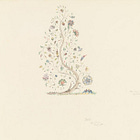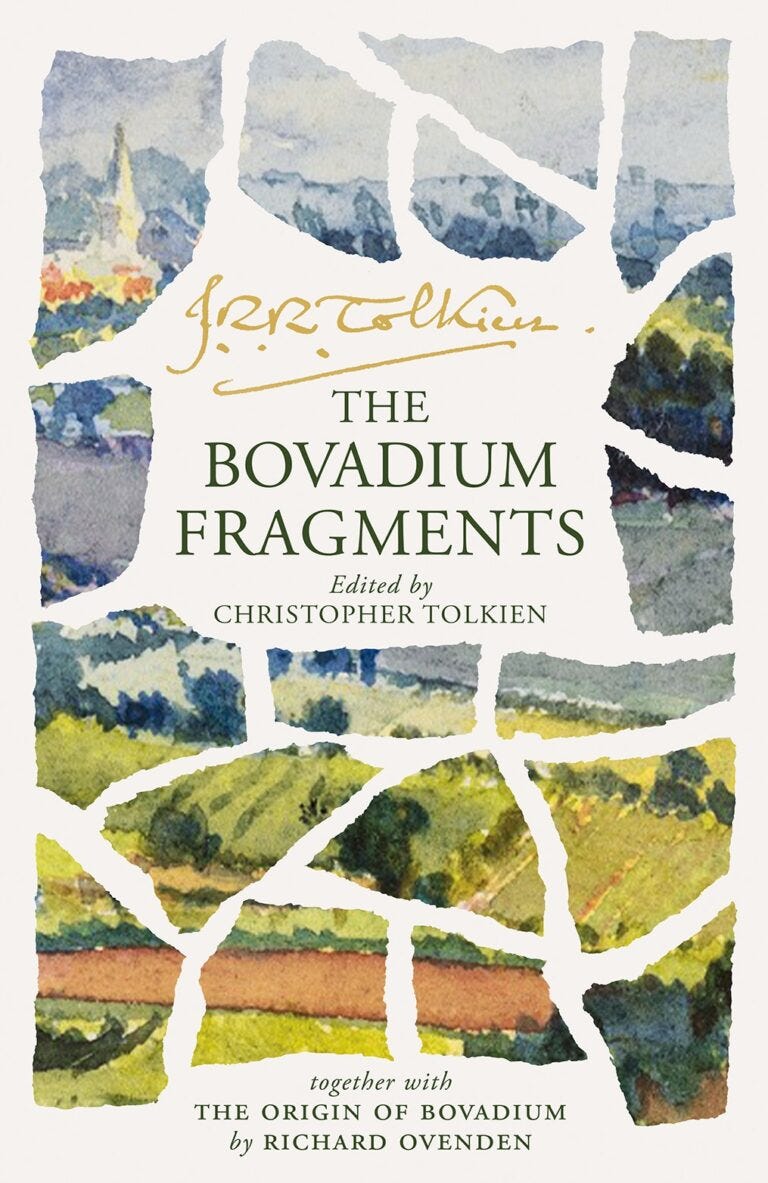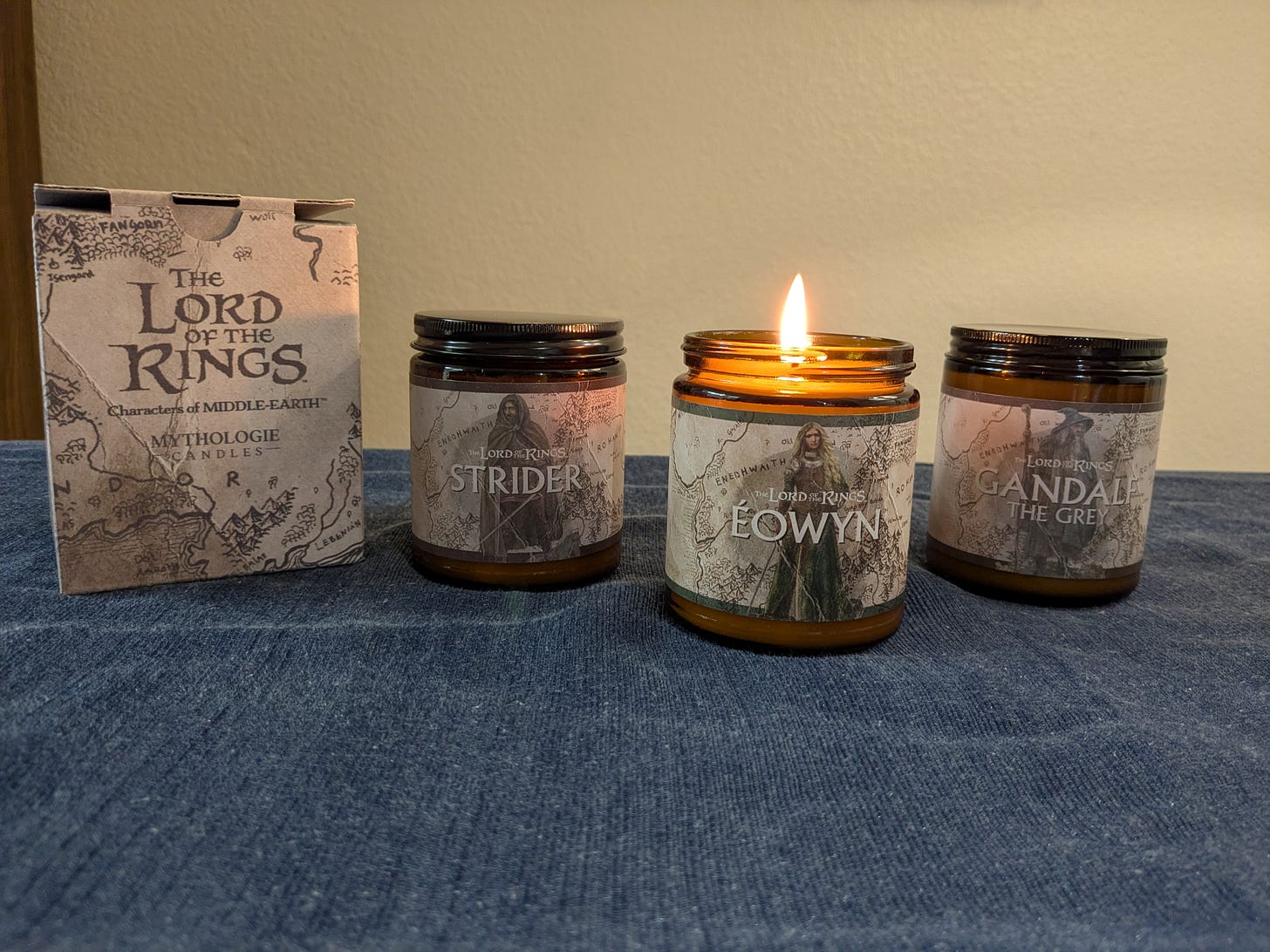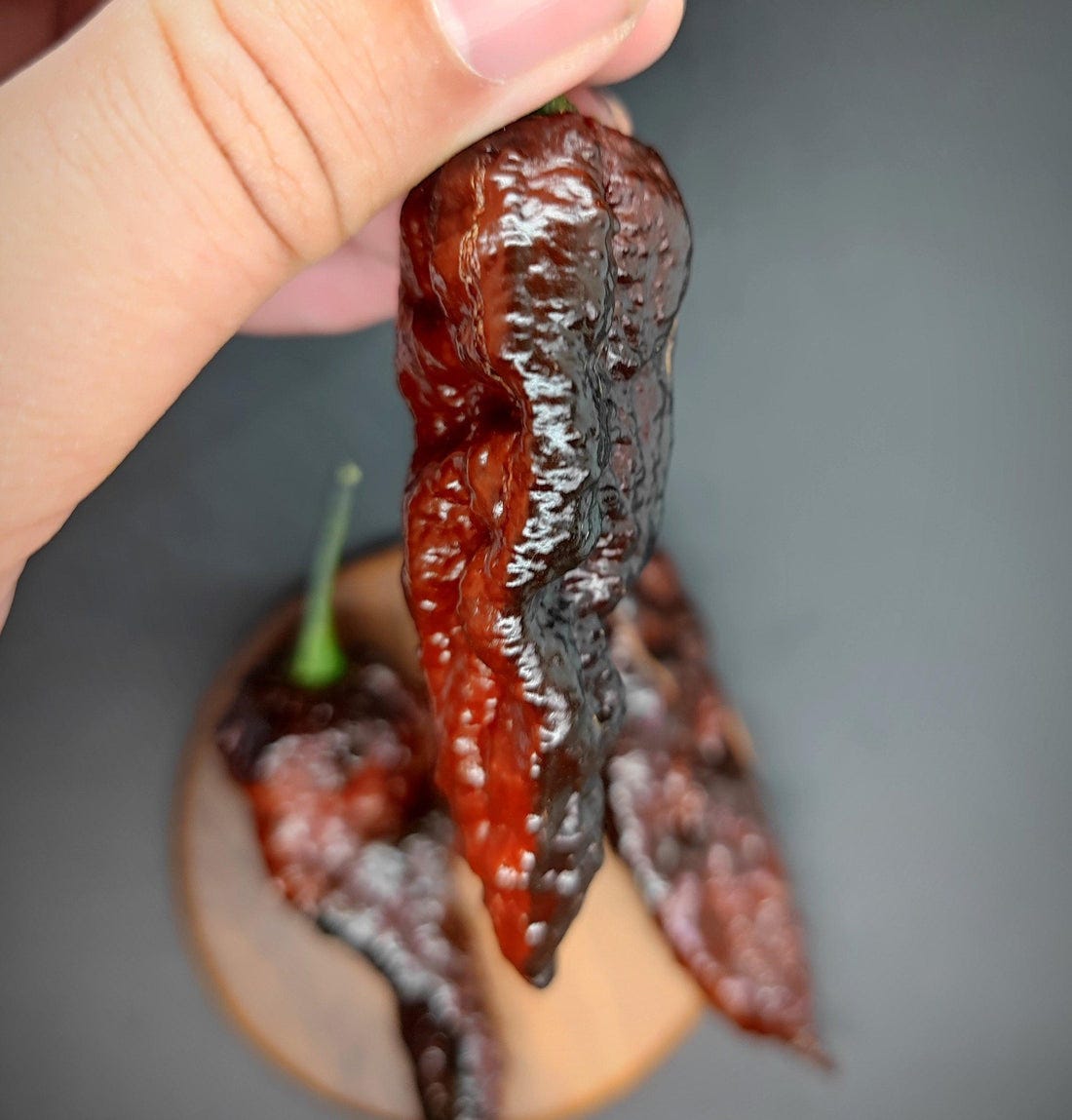Arda, Andor, Applicability, and Allegory (Treasures #024)
What Tony Gilroy had to say about Tolkien's influence on the recent Star Wars series, plus other Tolkien-related treasures
Hello all! Mae govannen!
In today’s newsletter I’ve got the latest of my every-so-often roundup of recent Tolkien Treasures,1 or Tolkien-related content that I’m currently enjoying and want to share with you all. Let's get right to it!
1. What Has Arda to Do with Andor? Tony Gilroy References Tolkien’s Concept of ‘Applicability’
Tony Gilroy, the creator and writer of Andor—the prequel to Rogue One, which is itself a prequel…it’s prequels all the way down—just recently wrapped up the promotional tour for the show (which aired back in April/May of this year) and one of his final stops was on Jon Stewart’s podcast, The Weekly Show.
Stewart remarked to Gilroy on the correlation he drew between the show, which traces the increasing brutality and boldness of the authoritarian Imperial regime as well as the rise of the Rebellion, and the events going on in the world at the time that he was viewing the show:
JON STEWART: Tony, I'm literally watching Andor's mining resources underneath Ghorman, the materials that they [the Empire] need to **** *** ***** ****1 as they're signing the mineral agreement in Ukraine. It's happening as I'm watching it.
In response to Stewart sharing his parallel, Gilroy remarks that it was not at all an isolated occurrence: all over the world, viewers were reminded of the real-life clashes between authoritarian regimes and those who would fight against them.
TONY GILROY: I mean, you're asking how it— I mean, mostly it makes me— my overwhelming feeling over the past three months and going out and sell the show is really— it's— it's— it's sadness. I mean, it's sad— there's a really— there's a—Tolkien had a whole thing about— he didn't like allegory. He didn't like people making comps to his work to World War— but he was really into applicability. He wanted it to be applicable to your life.
So, I'm not exactly sure how wide that he takes that term, but to me, it's been shocking to go around the world— we went around the world selling the show, and every place we went, because I really didn't want to— particularly in the beginning, I didn't want to have the show get ghettoized by being left or right or political or whatever, I was really— we were really surfing through. But every journalist, every interview that we did, everywhere we went, people were finding ways to take things— the same incident and make it applicable for them.
Oh, this is Gaza, this is Ukraine, this is Northern Ireland, this— this is me, man. This is me. This is us.
On the one hand, I can imagine that there would be a sort of satisfaction as an artist, creator, and writer for something that you created to resonate so powerfully with so many people.
But on the other, I see why Gilroy shares that his main takeaway from all of this is one of sadness. For all these people to draw parallels to all these different revolutions and instances of totalitarianism from both current events and from history means that there is no shortage of these sorts of scenarios to make these comparisons.
Ultimately, Gilroy zeroes in on a principle from Tolkien’s writings where Tolkien distinguishes between Allegory and Applicability.
What is the difference between the two? I wrote the following about Tolkein’s view of allegory and applicability (and his preference for the latter) in an article exploring Tolkien’s short story “Leaf by Niggle”:
Tolkien’s opinion on allegory was that it bordered on insulting to the reader for an author to force them to read their work in such a way that only a single interpretation was possible. Instead, he preferred a story so full of authenticity and correspondence to real life that the reader would find it easy to glean applications based on their own experiences.
In the foreword of the second edition of The Lord of the Rings, Tolkien commented, “I cordially dislike allegory in all its manifestations, and always have done so since I grew old and wary enough to detect its presence. I much prefer history, true or feigned, with its varied applicability to the thought and experience of readers. I think that many confuse 'applicability' with 'allegory'; but the one resides in the freedom of the reader, and the other in the purposed domination of the author.”
Read more here:
In Tolkien’s view, a story where each point of reference has a one-to-one correspondence to a real-life person, event, or principle is inferior to a story where there are parallels one can draw between its events and characters and real life but the Author doesn’t have one “true” intended meaning.
Circling back to Gilroy, when he wrote Andor he was informed by real history of revolutions throughout the world, but he also was not attempting to write an allegory about any one of them in particular. When Stewart shares the parallel he drew between Andor and the current war in Ukraine, Gilroy did not respond, “Ah, well I was actually writing about the French Revolution! You missed the point.”
No, instead he cites Tolkien and shares that his own “feigned history” he created in Andor is applicable to those all over the world who have lived through or studied a similar conflict in our own history.
Applicability has the power to elevate an otherwise great story to another level entirely, where we appreciate the work not just for its intrinsic quality but also for the way that we find it connects to (and gives more perspective to) our own lives.
In that way, like in so many others, both Andor and The Lord of the Rings excel.
Enjoy the content Jokien with Tolkien brings to your inbox each week? Consider supporting JWT!
It’s $5 a month or $40 a year and you get full Discord access and bonus content every month while keeping this newsletter flowing to everyone’s inboxes week in and week out.
Special thanks to Lisa P and Alexander S for upgrading to a paid subscription this week!
Hit the button below for the details on how to join them and support JWT:
2. New Satirical Fantasy by Tolkien—The Bovadium Fragments—releasing in late 2025
Ohh, this one seems right up my alley! In addition to all his other prodigious output, Tolkien apparently wrote a “satirical fantasy” which Humphry Carpenter described as “a parable of the destruction of Oxford (Bovadium) by the motores manufactured by the Daemon of Vaccipratum (a reference to Lord Nuffield and his motor-works at Cowley) which block the streets, asphyxiate the inhabitants, and finally explode.”
Sounds so very interesting for many, many reasons!
The Bovadium Fragments will release in October in the UK and in November here in the States.
You can preorder it on Amazon here.
3. Mythologie Candles’ Lord of the Rings Collections
Mythologie was kind enough to send me some samples from their Characters of Middle-earth and Spring in the Shire collections: check out the individual scents and bundles for yourselves at their Lord of the Rings collection page!
4. Rings of Power Season 3
Rings of Power Season 3 officially went into production yesterday, with The Rings of Power sharing a video of Morgoth’s crown with Sauron’s musical theme playing as a teaser:
5. Nazgul’s Breakfast
I was recently alerted to the existence of a hot pepper entitled “Nazgul’s Breakfast.” One pepper to rule them all!
There we have it, friends: my recent Tolkien Treasures!
What have you been enjoying lately (or will enjoy soon) that is Tolkien-related? Let me know in the comments!
📚 You can read more of my writing by reading my books! My latest is a collection of essays on The Lord of the Rings, The Silmarillion, and more of Tolkien’s works (and their adaptations). You can also find it and more of my books on Amazon or Gumroad
⚔️ If someone forwarded this email to you or you found it through social media or Google, I’d like to invite you to join 13,000+ subscribers in the Jokien with Tolkien community: Subscribe here and get a free gift just for joining!
🏹 Chosen as a Substack Featured Publication in 2023
🪓 Official merch available in the Jokien with Tolkien store
❌ All typos are precisely as intended
🔗 Links may be affiliate, which is a free-to-you way to support this newsletter where I earn a small commission on items you purchase
🗃️ Can’t wait till next week for more content? View the archive
🎯 Interested in writing a guest piece? Check out my submission guidelines. Want to sponsor a future issue of Jokien with Tolkien? E-mail me at jrrjokien@jrrjokien.com
Slight spoilers, but the “deep substrate foliated kalkite" the Empire is mining will be used to “fuel the Death Star”










Excellent piece! Thanks, and that Nazgûl pepper looks mean as heck🔥🔥🔥!
ANOTHER previously unreleased Tolkien story? Imagine that...